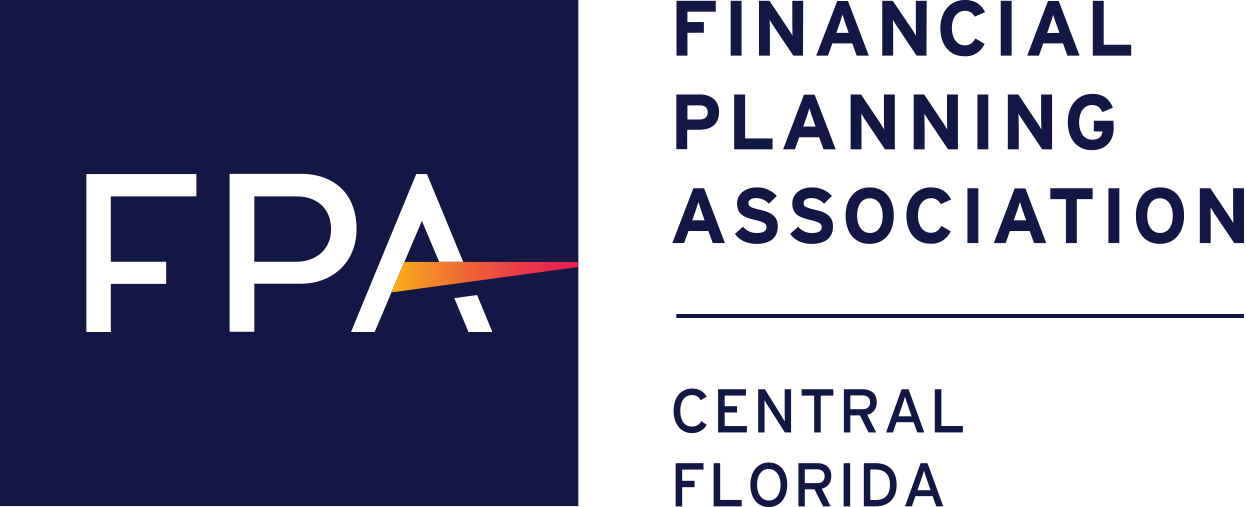
Why Consider a Career in Financial Planning? Let’s Count the Reasons
 “I love the idea of directly impacting peoples’ lives,” Natalie Colley says from her office on Broadway in New York City.
“I love the idea of directly impacting peoples’ lives,” Natalie Colley says from her office on Broadway in New York City.
That desire to personally connect with and positively affect others is the chief reason Colley left the pharmaceutical industry behind after seven years as a chemical engineer for a career as a financial planner. Working at major drug companies on the east and west coasts, “I felt too far away from the people I wanted to help,” she explains.
With her career pivot, Colley, now a CERTIFIED FINANCIAL PLANNER™ (CFP®) professional and analyst for Francis Financial in Manhattan, NY, says she feels like she finally has closed that gap and found professional fulfillment. “Changing careers into financial planning has been a tremendously positive experience for me. Working with people on a day-to-day basis, you know you are positively impacting them.”
The ability to make life better for others is one of many reasons to consider pursuing a career in financial planning, whether you’re a career-changer like Colley or someone who’s just out of school and considering their options. Financial adviser placed 37th overall, and 8th in the “business jobs” category, on the U.S. News & World Report’s 2018 rankings of the 100 best jobs in America, based on pay, year-to-year challenge, the match of talents to skills, stress level, opportunity for career advancement and work-life balance.
But the rankings tell only part of the story. Here Colley and several of her peers from the financial profession explain what makes life as a financial planner rewarding.
Strong demand for financial advisers. In 2017, CareerCast.com identified financial adviser as the second-toughest job to fill, behind only data scientist.
What’s more, the financial planning field is ripe for an infusion of younger and more diverse talent, according to FPA member Scott A. Bishop, CFP® of STA Wealth Management in Houston, TX. “The financial planning community is aging,” he says, “and looking for exit strategies. It could be a great time to find a mentor to ultimately ‘buy’ their business.
“The financial planning community [also] needs diversity,” adds Bishop. “It is currently, in my opinion and by the evidence when I attend conferences, dominated by older white males. The diversity of experience, outlook and opinions would be a welcome addition to the CFP® professional community.”
Financially rewarding. The median annual salary for financial advisers was $90,530 in 2016; the average was $123,100, more than most other business jobs, according to the U.S. News rankings. “On top of their salaries, many advisers also earn substantial bonuses,” the report notes.
Rewarding in ways that go beyond the bottom line. Each day provides new opportunities to directly and positively impact others’ lives. “It is extremely rewarding to help people sort through the noise, get organized and have the peace of mind that they are on the right path,” says FPA member Jamie A. Bosse, CFP®, of Aspyre Wealth Partners in Overland Park, KS.
The relationship-based nature of the job — working directly with individuals, couples, families and business owners — is “the most rewarding part of the job,” echoes Colley. “The relationships you can build with people are unique and special. You get a chance to become not just an adviser but in many cases, a friend.”
What’s more, the range of skills required to be a financial planner, the variety of career options within the financial planning field and ongoing access to professional development and education mean there are plenty of opportunities to grow professionally. “The profession is so broad and diverse,” notes Colley, “that there is always something new to learn.”
Engaging and varied work. “No two days are the same,” says Colley. A financial planner’s job description may have them working on a couple’s comprehensive investment strategy one part of the day, spending lunch addressing a group of seniors about maximizing their Social Security benefits, then meeting with a client about their insurance needs, for example, or developing recommendations to help a client make the financial transition from work to retirement.
As the trusted adviser to an individual, couple or family, a financial planner oftentimes becomes a long-term partner, one who has the unique opportunity to guide people through various life stages and transitions — into home-ownership, marriage and parenthood, through challenges such as a recession or divorce, across the arc of their careers, then on toward, and through, retirement.
Workplace flexibility. In many situations, financial planners have the latitude to work remotely, along with the flexibility in their work schedule to accommodate other needs — shuttling kids after school, for example, or coming to work a little late after a morning yoga class.
Upward mobility. “There are many avenues a person can take when they’re in this field,” Colley points out. “You can move into being a consultant, or into management at a firm. You can develop your skills in a specific niche or specialty, where you work in a certain area you’re passionate about.” That could be financial planning for a certain demographic, such as women, Millennials or divorcees, for example. It could be catering to members of a specific profession — attorneys, doctors, government workers, etc. The possibilities are many.
The chance to build a loyal following. Many firms give financial planners the opportunity to build their own client base, their own “book of business” that they cultivate, nurture and serve. Here’s a group of people, each of whom may attribute their financial well-being specifically to you, their financial planner.
For entrepreneurial types, the chance to “hang your own shingle.” If the idea of starting and running a business appeals to you, financial planning can provide a direct route to launching your own entrepreneurial venture.
It is extremely rewarding to be with clients throughout the times of their lives. For example, helping a client plan for their newborn by getting things in order, setting up a 529 plan, and then watching that child graduate college shows that you were an integral part of that family’s financial success in making these types of things doable for the client. Wonderful friendships develop and the ability to help others throughout their lifetime makes this profession truly rewarding and unlike other professional career opportunities.
For more information about a career in financial planning, visit the website of the CFP® Board, the body that oversees the CERTIFIED FINANCIAL PLANNER™ designation.
October 2018 — This column is provided by the Financial Planning Association® (FPA®) of Central Florida, the principal professional organization for Certified Financial PlannerTM (CFP®) professionals. FPA seeks to elevate a profession that transforms lives through the power of financial planning. Through a collaborative effort to provide more than 23,000 members with tools and resources for professional education, business support, advocacy and community, FPA is the indispensable resource for CFP® professionals. Please credit FPA of Central Florida if you use this column in whole or in part.
The Financial Planning Association is the owner of trademark, service mark and collective membership mark rights in: FPA, FPA/Logo and FINANCIAL PLANNING ASSOCIATION. The marks may not be used without written permission from the Financial Planning Association.
